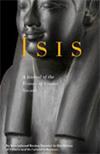定位中亚探险队:古脊椎动物学中的帝国主义认识论
IF 0.9
2区 哲学
Q2 HISTORY & PHILOSOPHY OF SCIENCE
引用次数: 0
摘要
20 世纪 20 年代,美国自然历史博物馆的研究人员在罗伊-查普曼-安德鲁斯(Roy Chapman Andrews)的带领下,从戈壁滩上出口了大量珍贵的化石。他们的探险在欧洲和美国引起了轰动,但在中国和蒙古却引起了巨大争议,尤其是在 20 世纪 20 年代末国民党新政府在南京成立之后。中国学者指责美国科学家掠夺他们的自然遗产,而安德鲁斯则认为,由于恐龙早在中国成立之前就已经灭绝,因此史前化石同样属于全人类。这篇文章将中亚探险定位在更广泛的认识论帝国主义历史中,探讨探险引发的争议揭示了全球背景下知识的生产、流通和积累。本文章由计算机程序翻译,如有差异,请以英文原文为准。
Locating the Central Asiatic Expedition: Epistemic Imperialism in Vertebrate Paleontology
During the 1920s, researchers from the American Museum of Natural History led by Roy Chapman Andrews exported a large collection of valuable fossils from the Gobi Desert. While their expedition was celebrated across Europe and the United States, it aroused enormous controversy in China and Mongolia, especially after a new Nationalist government was formed in Nanjing during the late 1920s. Whereas Chinese scholars accused American scientists of plundering their natural heritage, Andrews argued that because dinosaurs went extinct long before the creation of China, prehistoric fossils belonged equally to all mankind. This essay locates the Central Asiatic Expedition within a broader history of epistemic imperialism to explore what the controversy that it engendered reveals about the production, circulation, and accumulation of knowledge in a global context.
求助全文
通过发布文献求助,成功后即可免费获取论文全文。
去求助
来源期刊

Isis
管理科学-科学史与科学哲学
CiteScore
1.00
自引率
16.70%
发文量
150
审稿时长
>12 weeks
期刊介绍:
Since its inception in 1912, Isis has featured scholarly articles, research notes, and commentary on the history of science, medicine, and technology and their cultural influences. Review essays and book reviews on new contributions to the discipline are also included. An official publication of the History of Science Society, Isis is the oldest English-language journal in the field.
The Press, along with the journal’s editorial office in Starkville, MS, would like to acknowledge the following supporters: Mississippi State University, its College of Arts and Sciences and History Department, and the Consortium for the History of Science, Technology, and Medicine.
 求助内容:
求助内容: 应助结果提醒方式:
应助结果提醒方式:


